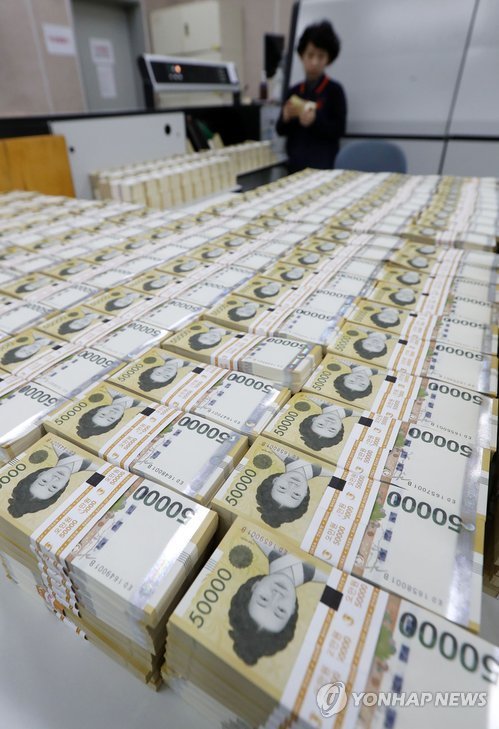South Korea and Australia renewed an existing currency swap for another three years at a size doubling the previous deal, South Korea’s central bank announced on Wednesday.
The governors of the central banks -- the Bank of Korea and the Reserve Bank of Australia -- signed a deal on Wednesday to extend the current deal, which was scheduled to expire on Feb. 22, for another three years.
The governors of the central banks -- the Bank of Korea and the Reserve Bank of Australia -- signed a deal on Wednesday to extend the current deal, which was scheduled to expire on Feb. 22, for another three years.

They also agreed to double the size of the currency swap agreement to 10 billion Australian dollars or 9 trillion won (about $7.8 billion) from A$5 billion or 4 trillion won when the initial deal with signed in 2014. The new agreement will be valid until Feb. 7, 2020 and can be renewed upon agreement.
The deal allows the two nations to purchase and repurchase each other’s currencies at existing rates during financial emergencies, the central bank said.
The Bank of Korea also said the expanded deal would help not only boost bilateral trade but also enhance stability in the financial sector, which has seen an increase in bilateral transactions in recent years.
Investments in Australian-dollar-denominated assets, including stocks and bonds, by domestic banks jumped 30.5 percent from the end of February 2014 to the end of March 2016, central bank data showed. Investments by Australian financial institutes during the same period also leaped 27 percent.
Bilateral trade amounted to $23 billion in 2016. South Korea is Australia’s fourth-biggest trade partner while mineral-rich Australia is South Korea’s eighth-largest trading partner, exporting mostly iron ore, coal and crude oil.
In addition to a currency swap deal with Australia, Asia’s fourth-largest economy maintains separate bilateral currency swap agreements with China, Malaysia and Indonesia, worth $78.4 billion in total, as of Wednesday. The central bank is under negotiation to extend a currency swap deal agreement with the United Arab Emirates that expired in October. South Korea is also part of a multilateral deal known as the Chiang Mai Initiative, worth $38.4 billion.
By Park Ga-young (gypark@heraldcorp.com)








![[Graphic News] More Koreans say they plan long-distance trips this year](http://res.heraldm.com/phpwas/restmb_idxmake.php?idx=644&simg=/content/image/2024/04/17/20240417050828_0.gif&u=)
![[KH Explains] Hyundai's full hybrid edge to pay off amid slow transition to pure EVs](http://res.heraldm.com/phpwas/restmb_idxmake.php?idx=644&simg=/content/image/2024/04/18/20240418050645_0.jpg&u=20240419100350)






![[From the Scene] Monks, Buddhists hail return of remains of Buddhas](http://res.heraldm.com/phpwas/restmb_idxmake.php?idx=652&simg=/content/image/2024/04/19/20240419050617_0.jpg&u=20240419175937)

![[KH Explains] Hyundai's full hybrid edge to pay off amid slow transition to pure EVs](http://res.heraldm.com/phpwas/restmb_idxmake.php?idx=652&simg=/content/image/2024/04/18/20240418050645_0.jpg&u=20240419100350)

![[Today’s K-pop] Illit drops debut single remix](http://res.heraldm.com/phpwas/restmb_idxmake.php?idx=642&simg=/content/image/2024/04/19/20240419050612_0.jpg&u=)